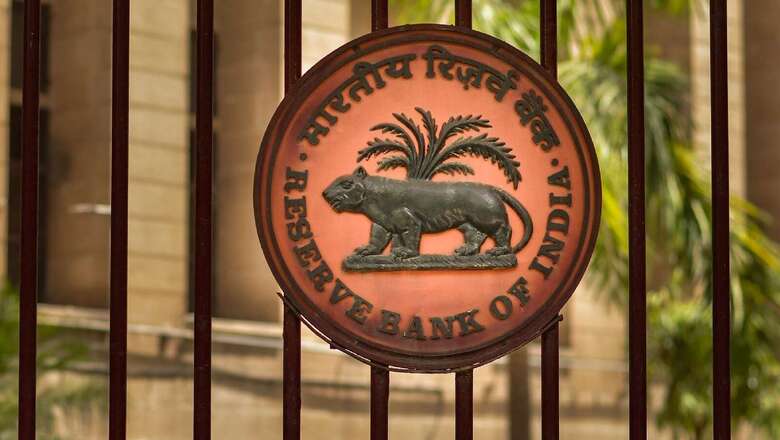
views
RBI MPC Meet: Reserve Bank of India governor Shaktikanta Das on Wednesday, December 8, said that vegetable prices are expected to see a seasonal correction with winter arrivals in view of bright prospects for the rabi crop. His statement came during the Monetary Policy Committee meet announcement on the day. He also said that the inflation trajectory is likely to be in line with the RBI’s earlier projections, and price pressures may persist in the immediate term.
“Headline CPI inflation ticked up in October to 4.5 per cent from 4.3 per cent in
September, after falling sharply between June and September. This uptick mainly
reflected a spike in vegetable prices due to unseasonal rains in some parts of the
country,” said Das during the meet.
“Hardening international energy prices have kept domestic LPG and kerosene
prices elevated for nearly three quarters, edging up fuel inflation to 14.3 per cent in October. The persistence of high core inflation (i.e., CPI inflation excluding food and fuel) since June 2020 is an area of policy concern in view of input cost pressures that could rapidly be transmitted to retail inflation as demand strengthens. In this context, the reduction of excise duty and VAT on petrol and diesel will bring about a durable reduction in inflation by way of direct effects as well as indirect effects operating through fuel and transportation costs,” he added.
The inflation trajectory, going forward, will be conditioned by a number of
factors, the RBI said in a statement later.
“The flare-up in vegetables prices due to heavy rains in October and November is likely to reverse with the winter arrivals. Rabi sowing is progressing well and is set to exceed last year’s acreage. Recent pro-active supply side interventions by the Government continue to restrain the pass-through of elevated international edible oil prices to domestic retail inflation,” said the statement.
Off late, tomato prices across southern states soared to as much as Rs 140 per kg in southern states amid incessant rains in the region.
The bank said that the crude oil prices have been corrected significantly in the recent days, referring to the Centre’s excise duty cut on petrol and diesel. Cost-push pressures from high industrial raw material prices, transportation costs, and global logistics and supply chain bottlenecks continue to impinge on core inflation, said the bank.
“The slack in the economy is muting the passthrough of rising input costs to output prices. Taking into consideration all these factors, CPI inflation is projected at 5.3 per cent for 2021-22; 5.1 per cent in Q3; 5.7 per cent in Q4:2021-22, with risks broadly balanced. CPI inflation for Q1:2022-23 is projected at 5.0 per cent and for Q2 at 5.0 per cent,” it said in the statement.
“Our monetary policy stance is primarily attuned to the evolving domestic inflation and growth dynamics. Yet, imminent shifts in monetary policy settings by systemically important global central banks are bringing about fresh challenges for domestic macrofinancial stability in the form of spillovers. In such a scenario, domestic macrofundamentals need to be resilient, with appropriate policy stances and actions, and strong buffers. In this context, a well-entrenched nominal anchor provided by the flexible inflation targeting framework has imparted credibility and flexibility to monetary policy to effectively address growth concerns during the pandemic,” said Shaktikanta Das during the MPC briefing.
“In the current situation, it is important to keep inflation aligned with the target while focusing on a robust growth recovery. Simultaneously, the Reserve Bank remains cognisant of the need to ensure that financial conditions are rebalanced in a systematic, calibrated and well-telegraphed manner while preventing build-up of financial stability risks. Price stability remains the cardinal principle for monetary policy as it fosters growth and stability. Our motto is to ensure a soft landing that is well timed,” he added.
Read all the Latest Business News here




















Comments
0 comment